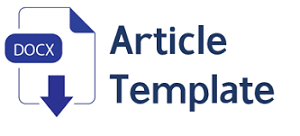TRANSFORMING PUBLIC HEALTH: NUTRITION LITERACY AS THE KEY TO CONFRONTING CONTEMPORARY EPIDEMIOLOGY
DOI:
https://doi.org/10.56691/jurnalmultidisiplinerbharasa.v4i02.448##article.subject##:
Nutrition Literacy, Public Health, Contemporary Epidemiology##article.abstract##
Contemporary epidemiology is characterized by a shift in the burden of
disease from infectious infections to non-communicable diseases (NCDs), which
are largely triggered by lifestyle factors and unhealthy diets. In this context,
nutritional literacy emerges as an essential competency that is very crucial, not just
knowledge, but as a transformative foundation in achieving individual and
collective health independence. This qualitative research aims to explore the perceptions, experiences, and challenges faced by the community in understanding
and applying nutritional information. Through a phenomenological approach with
in-depth interviews with 20 participants from various socio-economic backgrounds
in urban and rural areas, this study found that nutritional literacy is influenced not
only by the availability of information, but also by non-cognitive factors, such as
socio-cultural influences, economic accessibility to healthy food, and the
complexity of messages conveyed by mass media. There is a dissonance between
the knowledge possessed and daily practice, which is often triggered by widespread
misconceptions and social norms. Participants often have difficulty distinguishing
between valid and misleading information, especially from social media. The
implications of these findings underscore the urgency of a more integrated and
contextual nutrition education intervention, which focuses not only on the
presentation of facts, but also on the development of critical skills to interpret
information and make informed choices. The transformation of public health in the
future must be centered on empowering the community through holistic, adaptive,
and sustainable nutritional literacy. This study concludes that strengthening
nutrition literacy is an absolute prerequisite to overcome today's epidemiological
challenges and create a healthier and more empowered generation.






























